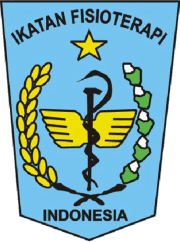Focus and Scope
Fisio Mu Physiotherapy Evidences Journal is an open access, peer-reviewed journal that will consider any original scientific article for expanding the field of Physiotherapy and health.
Aim:
This journal aims to publish articles with special interest in the development of physiotherapy and health sciences. Not only limited to discussing musculoskeletal, but this journal covers broader health sciences seen from the development of motion and activity.
Scope:
- Physiotherapy Musculoskeletal
- Physiotherapy Neurology
- Physiotherapy Cardio Pulmonal
- Physiotherapy Pediatric
- Physiotherapy Integumen
- Physiotherapy Reproduction Health
- Physiotherapy Geriatric
- Physiotherapy Sport
- Physiotherapy Wellness
Section Policies
Articles
Peer Review Process
PEER REVIEW POLICY
The practice of peer review is to ensure that good manuscript is published. It is a process at the heart of good scholarly publishing and is carried out on all reputable journals. Our reviewers play a vital role in maintaining the high standards of manuscripts are peer reviewed following the procedure outlined below.
Initial manuscript evaluation
All new submissions are screened for completeness and adherence to the Author Guidelines. Those that pass are then assigned to an Editor for consideration for sending for peer review. Authors of manuscripts rejected at initial evaluation stage will normally be informed within 1 month of receipt.
Editor evaluation
When assigned a new submission, the Editor will decide if it warrants peer review or if it should be rejected without review. Manuscripts rejected at this stage are insufficiently original, have serious conceptual and/or methodological flaws, have poor grammar, or are outside the aims and scope of the journal.
Authors of manuscripts rejected at this stage will normally be informed within 1 week of assignment to the editor.
Feedback is provided by the Editor for all manuscripts rejected without review and, where possible, suggestions are made on other suitable publication outlets.
Those manuscripts deemed suitable for peer review are passed to at least 2 expert reviewers for review.
Type of peer review
FISIO MU employs blind review, where the reviewers remain anonymous throughout the process.
How the reviewers are selected
Reviewers are matched to the paper according to their expertise.
Reviewer reports
Reviewers are asked to evaluate a manuscript for:
- originality and significance of contribution
- Focus and scope relevancy
- adequacy of methodology, analysis and interpretation
- clear and concise writing style
- organisation
Reviewers are asked to provide anonymous comments to the author and are also given the option of providing confidential comments to the editor. The comments to the author are also made available to other reviewers of the manuscript.
Reviewers are not expected to correct or copy edit manuscripts. Language correction is not part of the peer review process.
How long does the review process take?
Typically the manuscript will be reviewed within 4-8 weeks. Should the reviewers' reports contradict one another or a report is unduly delayed, a further expert opinion will be sought. If necessary, revised manuscripts may be returned to the initial reviewers, usually within 1 month. Reviewers and Editors may request more than one revision of a manuscript, and alternative reviewers may also be invited to review the manuscript at any time.
The final decision and time to publication
The Editor is responsible for the decision to reject or recommend the manuscript for publication. This decision will be sent to the author along with any recommendations made by the referees.
REFERENCE AND PLAGIARISM TOOLS
Publication Frequency
Periodic journal published two times in one year (January and July).
Open Access Policy

This journal provides immediate open access to its content on the principle that making research freely available to the public supports a greater global exchange of knowledge.
This journal is open access journal which means that all content is freely available without charge to users or / institution. Users are allowed to read, download, copy, distribute, print, search, or link to full text articles in this journal without asking prior permission from the publisher or author. This is in accordance with Budapest Open Access Initiative
Archiving
This journal utilizes the LOCKSS system to create a distributed archiving system among participating libraries and permits those libraries to create permanent archives of the journal for purposes of preservation and restoration. More...











